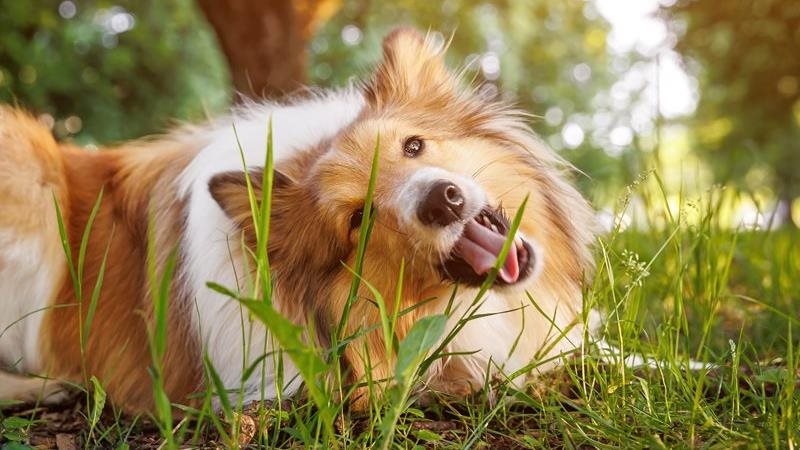
Why is my dog eating grass, and should I be worried?
We all know dogs who munch on grass like Holsteins on pasture and cats who can’t get enough of the family plants. I’m pretty sure that dogs know they are not cows, but do they understand that their digestive system can’t tolerate that much vegetation at once? Cats are carnivores, so why the heck would they want to eat the green stuff? Let’s talk about what we know.
Eating grass... instinct or just tastes good?
The answer is probably both.
-
Some pets seem to like the taste of grass and other vegetation. In small amounts, grass and many plants are fine for cats and dogs.
-
When we look at wild animals, their diet is made up of raw meat in the form of prey. To keep parasite burdens under control, they may eat grass in order to make themselves vomit. This instinct may explain the behaviour in our pet dogs and cats – even if they are fully protected with routine parasite control.
-
Abdominal pain and nausea can contribute to the urge to eat grass. Pets probably don’t “know” that eating grass will make them throw up, but they may learn that doing so provides temporary relief from tummy upsets in relation to stomach issues, pancreatic disease, and liver conditions.
Pet owner take-aways
-
Make sure that grass and plants are non-toxic. Most lawn species of grass tend to be fine for cats and dogs. Ask your veterinarian about home and garden plants like lilies, azaleas, and foxgloves that can be poisonous. We also want to keep pets away from garden waste that may harbour toxic molds.
-
Keep pets away from lawns and gardens that have recently been treated with fertilizer, herbicides, and insecticides. Check labels and ensure that landscape professionals know that you have pets.
-
Check your pet’s diet. If your dog or cat occasionally eats grass and vomits, check with your veterinarian about their diet. Some animals will benefit from a food change that adjusts protein and dietary fibre levels to match their individual needs.
-
Look for other signs of abnormal appetite. Pets may have behaviour conditions that cause them to eat unusual plants and non-food materials. Rarely, anxiety-based disorders may cause compulsive eating of grass and other vegetation.
Don’t ignore signs of serious illness or nutritional deficiencies
“Pica” is the name we use to describe an abnormal appetite. Don’t ignore symptoms that may be associated with abdominal pain, nausea, or digestive difficulties. Always consult with your veterinarian if your cat or dog is eating grass on a regular basis, especially if you see signs of an upset stomach, like vomiting or changes in bowel movements.
Pet insurance can help with the cost of vet visits
Want to put your worry at ease? Petsecure pet insurance helps cover the costs of examinations, diagnostic testing, and treatment for eligible grass-eating conditions. It provides peace of mind from the unexpected costs of vet bills. Get your free, personalized quote today!
About Dr. Fisher
Dr. Colleen Fisher obtained her Doctor of Veterinary Medicine in 1990 from the University of Saskatchewan. She is the veterinarian for the Canadian Task Force 4 (Manitoba) Urban Search and Rescue Team. Dr. Fisher received her MSc in Clinical Animal Behaviour from the University of Edinburgh in 2019. As Petline's Veterinary Medical Director, she is enthusiastic about sharing knowledge between the insurance professionals and veterinary team members that serve our mutual clients.
